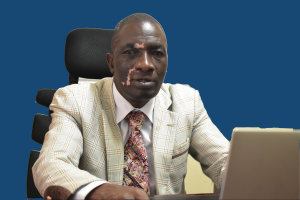Management Team
- The Chief Principal
- Deputy Principal Administration
- Deputy Principal Academics
- Registrar
- Dean of Students
- Senior Internal Auditor
- Finance Manager
- ICT Manager
- Human Resource Manager
- Senior Supply Chain Officer
- IGU Manager
Message from the Chief Principal
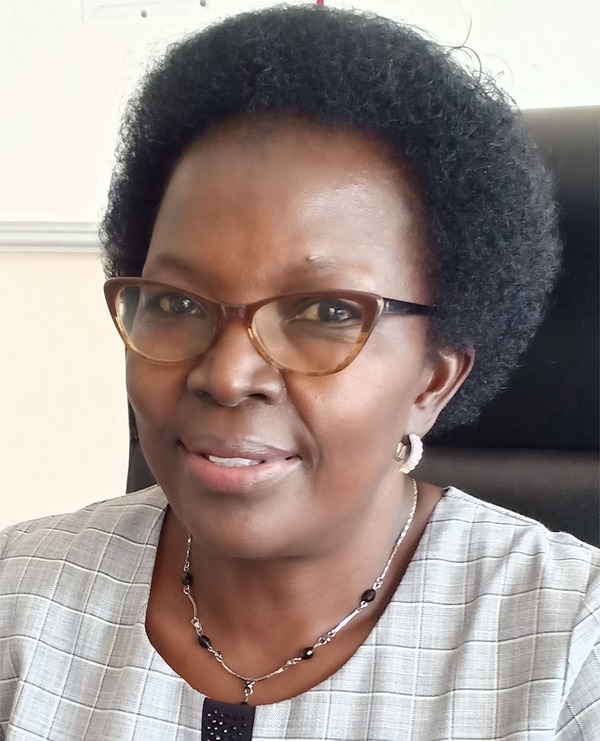 The Kisumu National Polytechnic has long been recognized as a centre of excellence in technical and vocational education. Our institution has consistently embraced change and innovation, adapting our programs to meet the evolving needs of industries and equipping our graduates with the skills required to excel in the job market.
Our institution has consistently demonstrated its commitment to excellence and has made significant strides in recent years. Over the past years the institution has recorded a marked improvement in its internal and external examination. This has been made possible by a dedicated teaching and non-teaching staff.
The polytechnic has embraced modern technology, established industry partnerships, and introduced modern teaching methodologies to ensure our students are well-equipped to meet the demands of a rapidly changing world. We have witnessed our graduates excelling in various sectors, making a positive impact, and contributing to the socioeconomic development of our nation and the county at large. The institution has embraced blended form of learning through its ODEL center. The polytechnic recently received 100 computers donated by the government from the Jitume program which will provide the youth with access to digital services, skills, and opportunities to enable them take advantage of technology for job creation.
At The Kisumu National Polytechnic, we recognize the transformative power of education. We are dedicated to providing our trainees with an inclusive, student-centred learning environment that nurtures their talents, fosters their creativity, and prepares them for the challenges of the future. We believe in the holistic development of our trainees, and we strive to equip them with not only technical skills but also critical thinking, problem-solving, and communication abilities that are vital for success in today’s globalized world.
The Kisumu National Polytechnic has long been recognized as a centre of excellence in technical and vocational education. Our institution has consistently embraced change and innovation, adapting our programs to meet the evolving needs of industries and equipping our graduates with the skills required to excel in the job market.
Our institution has consistently demonstrated its commitment to excellence and has made significant strides in recent years. Over the past years the institution has recorded a marked improvement in its internal and external examination. This has been made possible by a dedicated teaching and non-teaching staff.
The polytechnic has embraced modern technology, established industry partnerships, and introduced modern teaching methodologies to ensure our students are well-equipped to meet the demands of a rapidly changing world. We have witnessed our graduates excelling in various sectors, making a positive impact, and contributing to the socioeconomic development of our nation and the county at large. The institution has embraced blended form of learning through its ODEL center. The polytechnic recently received 100 computers donated by the government from the Jitume program which will provide the youth with access to digital services, skills, and opportunities to enable them take advantage of technology for job creation.
At The Kisumu National Polytechnic, we recognize the transformative power of education. We are dedicated to providing our trainees with an inclusive, student-centred learning environment that nurtures their talents, fosters their creativity, and prepares them for the challenges of the future. We believe in the holistic development of our trainees, and we strive to equip them with not only technical skills but also critical thinking, problem-solving, and communication abilities that are vital for success in today’s globalized world.
Mrs. Catherine Kelonye
Chief Principal -The Kisumu National Polytechnic
A message from the Deputy Principal Administration
 The Kisumu National Polytechnic, established in 1967, stands as the oldest higher learning institution in western Kenya. Since its inception, the Polytechnic has witnessed remarkable growth in its academic offerings, catering to students from across the nation. Nestled amidst the serene lake region of Kenya, the Kisumu National Polytechnic boasts a vibrant campus within Kisumu City. Our institution is well-equipped with recreational facilities for both students and staff, fostering an environment conducive to learning and personal growth.
The Kisumu National Polytechnic, established in 1967, stands as the oldest higher learning institution in western Kenya. Since its inception, the Polytechnic has witnessed remarkable growth in its academic offerings, catering to students from across the nation. Nestled amidst the serene lake region of Kenya, the Kisumu National Polytechnic boasts a vibrant campus within Kisumu City. Our institution is well-equipped with recreational facilities for both students and staff, fostering an environment conducive to learning and personal growth.
As the Deputy Principal in charge of Administration, Planning, and Development, I play a pivotal role in supporting the Chief Principal in the day-to-day management of the institution, adhering to the guidelines set forth by the TVET Act. In collaboration with the Human Resources department, it is our responsibility to ensure that the Polytechnic maintains a qualified and adequate workforce, capable of meeting industry standards and competing effectively in the job market.
The Kisumu National Polytechnic takes pride in its position as a market leader in TVET, continuously striving to achieve world-class standards in the provision of technical, entrepreneurial training, research, and innovation. We value our partnerships with stakeholders, recognizing their crucial role in our success. The community forms an integral part of our ecosystem, providing us with students to nurture and contributing to a secure environment that facilitates our daily operations.
In line with our corporate social responsibility initiatives, we have organized Boda-Boda business training for members of the local community, aiming to enhance their livelihoods. Our commitment to the community extends to assisting those in need, through visits and support programs.
Our office plays a central role in maintaining discipline among students and staff, fostering an open and consultative environment for all stakeholders.
In response to the Kenya Kwanza Government’s greening TVET initiative, the Kisumu National Polytechnic has actively participated, planting over sixteen thousand trees during the 2023-2024 financial year. We remain committed to expanding our greening efforts in the coming years.
I strongly encourage students who have completed their KCSE examinations in the past two years to explore the diverse range of courses offered at the Kisumu National Polytechnic. Parents are urged to support their sons and daughters in taking advantage of the Government’s new funding model to pursue their academic aspirations.
We welcome you to join the Kisumu National Polytechnic community and embark on a journey of academic excellence and personal growth.
Mr Gilbert Olala
Deputy Principal Administration.
A message from the Deputy Principal Academics
MR. TOM MBOYA OSWAGO.
The Deputy Principal Academics
Registrar Academics
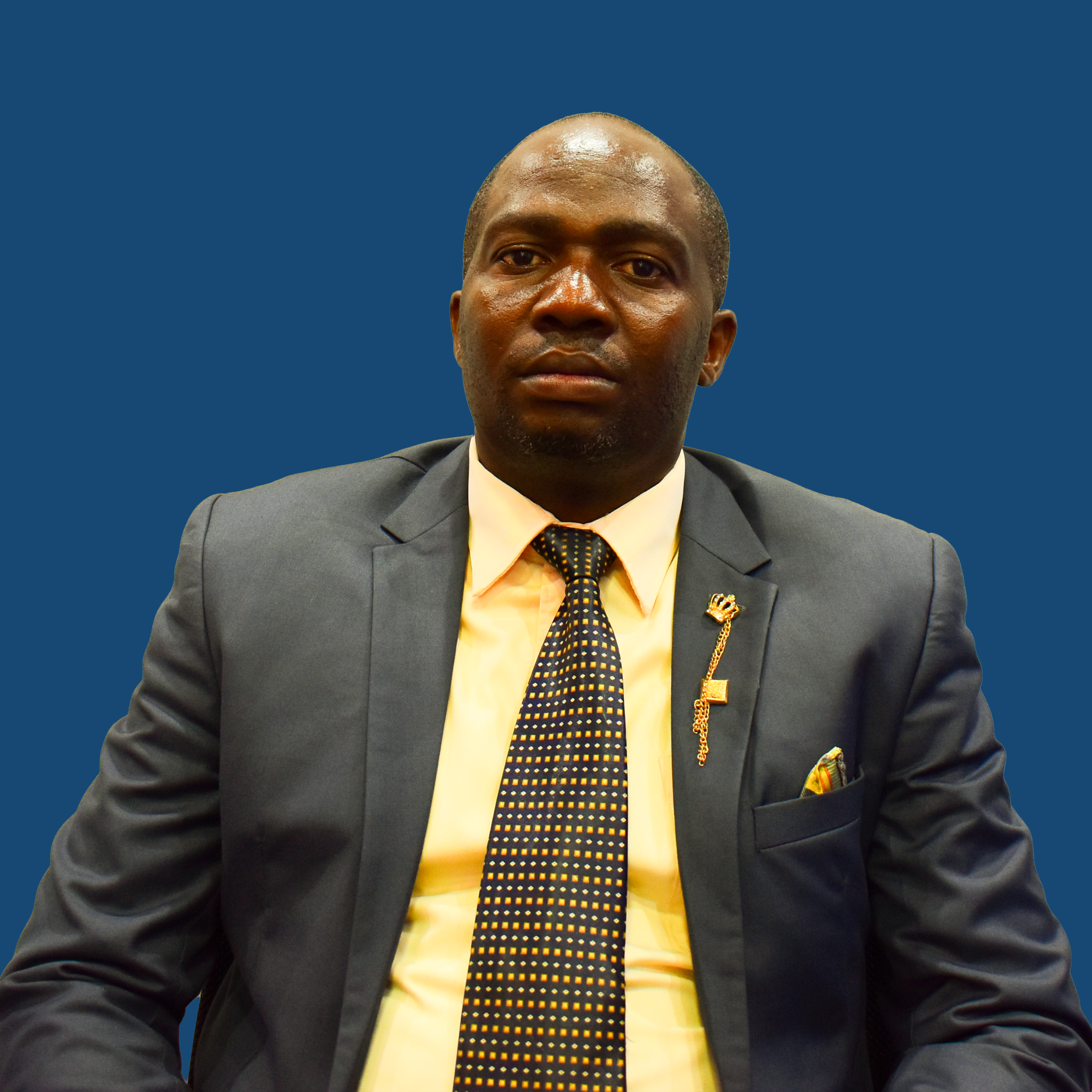 As the registrar academics, I am charged with the implementation of the polytechnic policies and procedures while providing services and support to students to ensure smooth running of the institution structures and student academic success.
As the registrar academics, I am charged with the implementation of the polytechnic policies and procedures while providing services and support to students to ensure smooth running of the institution structures and student academic success.
Mr Joshua Mose Keng’werere
The Registrar
A message from the Dean of students
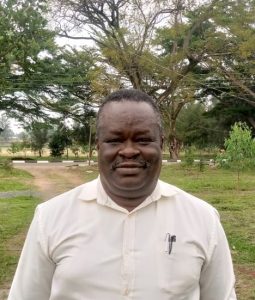 The Kisumu National Polytechnic is the best academic destination for quality education because the training is skills based, discipline amongst the students is very high and lecturers are dedicated towards their work. The Polytechnic is unique in that facilities for various courses are adequate. A close relationship between lecturers, students, administration and other members of staff exists too. The existing teamwork has ensured continued academic excellence and ready job market for students whenever they graduate.
The office of the Dean of Students at The Polytechnic is primarily concerned with students’ welfare while in the Polytechnic. It is committed to helping all students at the reach their fullest potential by encouraging them to engage in self-reflection and think critically in order to foster personal growth. The DoS staff members work to meet each student’s unique need in order to support their academic success.
The Office is under the general guidance of the Chief Principal and is situated on first floor of the Hospitality Building/Student’s Centre.
The office works in liaison with its service departments and co-ordinates the activities the departments. The departments are; Guidance and Counseling, Accommodation, Catering services, Clinical services, Clubs and Societies, Students Union (KINAPOSA) and Sports. It also works in liaison with the Security department for student’s welfare. The Office of the DoS acts as a link between the Polytechnic Administration and the students and further provides chaplaincy services through the relevant patrons by co-coordinating religious activities in the institution.
The Kisumu National Polytechnic is the best academic destination for quality education because the training is skills based, discipline amongst the students is very high and lecturers are dedicated towards their work. The Polytechnic is unique in that facilities for various courses are adequate. A close relationship between lecturers, students, administration and other members of staff exists too. The existing teamwork has ensured continued academic excellence and ready job market for students whenever they graduate.
The office of the Dean of Students at The Polytechnic is primarily concerned with students’ welfare while in the Polytechnic. It is committed to helping all students at the reach their fullest potential by encouraging them to engage in self-reflection and think critically in order to foster personal growth. The DoS staff members work to meet each student’s unique need in order to support their academic success.
The Office is under the general guidance of the Chief Principal and is situated on first floor of the Hospitality Building/Student’s Centre.
The office works in liaison with its service departments and co-ordinates the activities the departments. The departments are; Guidance and Counseling, Accommodation, Catering services, Clinical services, Clubs and Societies, Students Union (KINAPOSA) and Sports. It also works in liaison with the Security department for student’s welfare. The Office of the DoS acts as a link between the Polytechnic Administration and the students and further provides chaplaincy services through the relevant patrons by co-coordinating religious activities in the institution.
Guidance and Counselling
The Guidance and Counseling unit promotes and facilitates students’ personality, social and intellectual development. It assists in bringing up a holistic person who is responsible, accountable and of good character in all these undertakings. Departmental Counselors liaise with those who closely interact with the affected students including parents, teaching staff, students and medical doctors and assist them to manage and resolve their problems. This unit also trains Peer Counselors and involves them in dealing with the HIV/AIDS scourge and Alcohol, Drug and Substance Abuse as well as family planning issues.Catering and Accomodation
Catering and Accommodation sections oversee the catering services and accommodation to students pursuing their academic studies. The sections ensure quality provision of meals and adequate accommodation space to students. The unit has two sections; Catering and hostel. The Catering section is in charge of kitchen within the polytechnic and provides students with quality meals using PAYE (Pay As You Eat system).KINAPOSA
For better coordination, the Polytechnic has an empowered students’ association known as Kisumu National Polytechnic Students’ Association (KINAPOSA). The students’ association is governed by elected student leaders who run their affairs pertaining to their general welfare vis-à-vis social, financial and academic, as per the approved constitution. The association articulates issues on behalf the students. This association prepares programmes for entertainment, cultural and social activities. The elections of the officials are held annually and are coordinated by the Office of the Dean of Students. After KINAPOSA elections, the dean of students organizes for leadership training to equip the newly elected officials with leadership skills. As the Dean of Students, my vision for TKNP is for the institution to have more hostels for females and independent entertainment rooms for both male and female students. I also hope to see the institution embracing online hostels’ bookings soonest possible. I would like to encourage both the student and staff to maintain the cordial and consultative relationship they have had over the years and the parents to bring their sons and daughters to the Kisumu National Polytechnic, as they will never regret.Senior Internal Auditor
 Internal auditing is an independent, Objective assurance and consulting activity designed to add value and improve an organization’s operations. The Internal Audit department, Kisumu National Polytechnic helps the institution accomplish its objectives by bringing a systematic, disciplined approach to evaluate and improve the effectiveness of risk management, control, and governance processes.
Our Internal Audit activities are risk based and we are guided by; the International Professional Practices framework (IPPF), The constitution of Kenya, the public finance and management act and regulations, The government Gazette notices on internal audit function, Circulars, The institutions Charter, policies and procedures among other laws and regulations.
Internal auditing is an independent, Objective assurance and consulting activity designed to add value and improve an organization’s operations. The Internal Audit department, Kisumu National Polytechnic helps the institution accomplish its objectives by bringing a systematic, disciplined approach to evaluate and improve the effectiveness of risk management, control, and governance processes.
Our Internal Audit activities are risk based and we are guided by; the International Professional Practices framework (IPPF), The constitution of Kenya, the public finance and management act and regulations, The government Gazette notices on internal audit function, Circulars, The institutions Charter, policies and procedures among other laws and regulations.
Core Principles
Integrity The Integrity of Internal Audit staff establishes trust and thus provides the basis for reliance on our judgement. Objectivity We exhibit the highest level of professional objectivity in gathering, evaluating, and communicating information about the activity or process being examined. Confidentiality We respect the value and ownership of information we receive and do not disclose information without appropriate authority unless there is a legal or professional obligation to do so. Competency We apply the knowledge, skills, and experience needed in the performance of internal audit activities. Mandate- Review and evaluate budgetary performance, financial management, transparency and accountability mechanisms and processes in the Institution.
- Give reasonable assurance through the audit committee on the state of risk management, control, and governance within the Institution.
- Review the effectiveness of the financial and non-financial performance management systems of the entities
- Evaluating the risk exposure relating to the achievement of the strategic objectives.
- Evaluating the reliability and integrity of information and the means used to identify, measure, classify and report such information.
- Evaluating systems established to ensure compliance with those policies, procedures, laws, and regulations which could have a significant impact on the organization.
- Evaluating the means of safeguarding assets and as appropriate, varying the existence of such assets.
- Evaluating operations or programs to ascertain whether results are consistent with the established objectives and goals and whether the operations or programs are being carried out as planned.
- Monitoring and evaluating the effectiveness of the organization’s risk management process.
CPA Barack Oduor Oluoch.
Senior Internal Auditor.
A message from the Finance Manager
 The Finance Department is a central office in any organization, the lubricant that oils all operations. In The Kisumu National Polytechnic, the Finance Department has the mandate of designing and implementing sound and effective systems for the management of the institutions’ resources. The strength or weakness of the finance department will determine the success or failure of an institution. In The Kisumu National Polytechnic, the department comprises highly qualified staffers who are experienced and result oriented. The 2015 fiscal year marked another consecutive period of positive audit opinions about the institution’s financial statements. This confirms the department’s records present the true financial position of the polytechnic and they are free of falsehoods. To enhance this process, we continue to pursue ICT advancements that can ensure relevant, reliable and timely accounting and management information. The Kisumu National Polytechnic is an academic hub in the region due to the large number of students who pass through it every year because of the high quality courses, delivered efficiently and at relatively low fees. The department urges the student body to take advantage of the available options to ensure they don’t disrupt their learning process.
Among the available options are:
The Finance Department is a central office in any organization, the lubricant that oils all operations. In The Kisumu National Polytechnic, the Finance Department has the mandate of designing and implementing sound and effective systems for the management of the institutions’ resources. The strength or weakness of the finance department will determine the success or failure of an institution. In The Kisumu National Polytechnic, the department comprises highly qualified staffers who are experienced and result oriented. The 2015 fiscal year marked another consecutive period of positive audit opinions about the institution’s financial statements. This confirms the department’s records present the true financial position of the polytechnic and they are free of falsehoods. To enhance this process, we continue to pursue ICT advancements that can ensure relevant, reliable and timely accounting and management information. The Kisumu National Polytechnic is an academic hub in the region due to the large number of students who pass through it every year because of the high quality courses, delivered efficiently and at relatively low fees. The department urges the student body to take advantage of the available options to ensure they don’t disrupt their learning process.
Among the available options are:
- for bursaries and HELB loans to ease fee payments (the Dean’s office helps students apply for HELB loans).
- Apply for TVET loans to facilitate the early payment of fees.
- Pay the fees in regular but reliable installments.
Our Functions
- Formulation, interpretation and implementation of financial policies, regulations and strategy
- Preparation of annual budgets and budgetary control
- Timely preparation and submission of periodical reports and financial statements
- Institution of controls for enhancing prudent management of resources both financial and non-financial.
Our Achievements
- Automation of the fees collection
- Departmental self-training on areas of expertise by all staff to enhance rotation of duties
Our Objectives
- To maintain prudent resource management
- To embrace technological advancements in all operations to enhance timeliness efficiency and effectiveness
- To continually monitor and review performance of departmental structures and systems by implementing an effective quality management system based on ISO 9001; 2008
- Facilitate quality service provision through improved system automation in each financial year
- Embracing the polytechnics core values, i.e. teamwork, integrity, quality, innovation, equity, transparency and accountability, environmental stewardship
Our Plans
- To computerize all financial transactions
- To spearhead continuous training programs for staff so that are at par with the dynamic globe
- Enter collaborations with investors to provide affordable alternative accommodation due to insufficient space within the polytechnic
- Supply quality goods and services to students by identified service/goods providers
- Agree with banks to ease payments e.g. through pay as you eat programme
A message from the ICT Manager
 The ICT Department at is committed to driving academic excellence through cutting-edge technology. Our core mandate is to provide robust and reliable Information and Communication Technology (ICT) infrastructure and services to support teaching, learning, research, and administrative functions within the institution and the community. We strive to create a dynamic and connected campus environment by offering reliable network connectivity, computer laboratories for learning, and access to essential software applications. Our team of skilled professionals is dedicated to providing technical support and training to faculty, staff, and students. Through innovative ICT initiatives, we aim to enhance the overall learning experience, foster collaboration, and equip our students with the digital skills necessary for success in the 21st century.
The ICT Department at is committed to driving academic excellence through cutting-edge technology. Our core mandate is to provide robust and reliable Information and Communication Technology (ICT) infrastructure and services to support teaching, learning, research, and administrative functions within the institution and the community. We strive to create a dynamic and connected campus environment by offering reliable network connectivity, computer laboratories for learning, and access to essential software applications. Our team of skilled professionals is dedicated to providing technical support and training to faculty, staff, and students. Through innovative ICT initiatives, we aim to enhance the overall learning experience, foster collaboration, and equip our students with the digital skills necessary for success in the 21st century.
Our focus areas include:
- Network infrastructure and management
- Computer hardware and software support
- Academic software and licensing
- E-learning and online resources
- Communication technology
- Information security and data protection
A message from the Human Resource Manager
The Human Resources Department caters for the welfare of staff in all departments of the Polytechnic on behalf of the administration. These services include:- Overseeing the maintenance and updating of staff records
- Implementation of HR polices
- Training and development of staff capacity
- Implementation and administration of all HR systems
- Recruitment and selection of new staff
- Coordination of workers’ welfare issues
- Managing employee relation matters.
Achievements
- Additional office space and modern equipment for staff
- Creation of an excellent working environment
- Construction of excellent sporting facilities in institution for staff and students
Plans
- To foster the rational improvement of staff welfare
- To improve employee satisfaction level from 72.8 per cent to 85 per cent
- Acquisition of more modern working equipment’s and machines
- To maximize customer satisfaction through improvement of staff service delivery.
A message from the Supply Chain Manager

The Supply Chain Management (SCM) Department plays the role of procuring goods and services for the institution all year round. The procurement process involves continuously updating a standing list (s) of registered suppliers as required of a procuring entity, preparing tender and asset disposal documents to facilitate fair competition.
The office is also charged with the responsibility to prepare, publish and distribute procurement and disposal opportunities including invitations to tender and to request for quotations and proposals, pre-qualification documents and invitations of expressions of interest. At The Kisumu National Polytechnic, the SCM section has managed to coordinate the receiving and opening of tender document as well as coordinating the evaluations of tenders, quotations and proposals, prepared and published tender awards. The section continues to prepare contract documents and debriefing letters in line with the award decision. The process ensures transparent and above board procurement process and the general management of the institution supply chain functions. The Supply Chain Management section, lead by the Supply Chain Manager, acts as a secretariat to the evaluation, inspection and acceptance and disposal committees and also coordinates the internal monitoring and evaluation of the procurement and supply chain. Over the last decade, the department has improved its interactions with internal and external stakeholders in a bid to match up to its expectations in a national institution set up. Some of its main achievements are:- Customer satisfaction
- Enhanced relationship with suppliers
- with the PPDA Act that governs procurement processes in national institutions
Income Generation Unit (IGU)
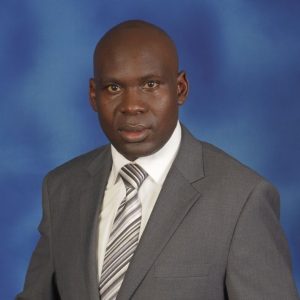 Kisumu National Polytechnic seeks to transform its income-generating activities (IGAs) into a sustainable revenue stream to bolster infrastructure, financial stability, and student training. To achieve this, the Income Generation Unit (IGU) will focus on optimizing resource utilization and developing sustainable business models.
Kisumu National Polytechnic seeks to transform its income-generating activities (IGAs) into a sustainable revenue stream to bolster infrastructure, financial stability, and student training. To achieve this, the Income Generation Unit (IGU) will focus on optimizing resource utilization and developing sustainable business models.
IGU Mandate and Responsibilities:
The IGU is tasked with the overall management and administration of income-generating activities. Its core functions include:
- Resource Optimization: Conducting comprehensive assessments of available resources (human, financial, physical, and technological) to maximize their impact on IGA performance. This involves efficient allocation and deployment of resources to achieve IGA objectives.
- Financial Management: Ensuring sound financial practices, monitoring revenue streams, controlling expenses, and maximizing financial returns on invested resources.
- Policy Development: Creating and implementing policies that promote resource utilization, efficiency, and IGA growth.
- Strategic Planning: Developing and executing strategies to expand IGAs, optimize resource allocation, and enhance overall IGA performance.
- Performance Management: Establishing key performance indicators (KPIs) to measure resource efficiency, IGA profitability, and overall impact. Regular monitoring and evaluation will inform decision-making and resource allocation.
- Stakeholder Engagement: Building strong partnerships with industry, government, and other stakeholders to leverage resources, share knowledge, and expand market opportunities.
- Identifying and prioritizing resource needs: Conducting a thorough assessment to determine the resources required for IGA success.
- Developing sustainable business models: Creating profitable and scalable IGAs that generate consistent revenue and optimize resource utilization.
- Building strategic partnerships: Collaborating with stakeholders to share resources, expertise, and market access.
- Implementing robust monitoring and evaluation: Tracking KPIs to measure resource efficiency and IGA performance, enabling data-driven decision-making.
Mr. Fredrick Gwara,
IGU Manager
Related Quick Links
Online Resources
- Student Portal
- LMS
- Programmes
- Research
Get in Touch
- Technology road, Next to Kisumu Stadium
- +254 723 446 773
- +254 742 809 415
- info@kisumupoly.ac.ke

